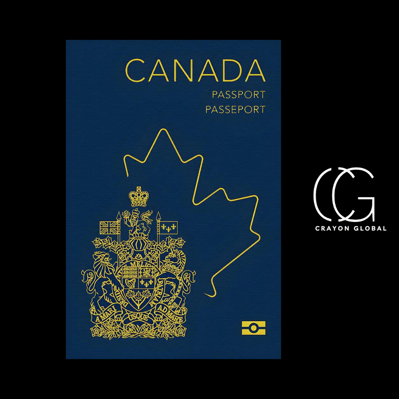Global Freedom Meets Financial Sophistication.™
Canada Start-Up Visa
1/11/20255 min read


Canada Start-Up Visa Program
Overview:
The Canada Start-Up Visa Program (SUV) is an immigration pathway designed to attract foreign entrepreneurs to Canada who have the potential to build innovative businesses. Launched in 2013 as a pilot and made permanent in 2018, the program aims to drive economic growth and create job opportunities by facilitating the immigration of high-potential entrepreneurs. It is one of the few immigration programs globally that directly targets startups, making Canada an attractive destination for global innovators and investors.
The program offers entrepreneurs the opportunity to obtain permanent residency in Canada, provided they can secure the support of a designated Canadian organization that will help them launch and grow their startup in the country.
Key Components of the Start-Up Visa Program:
1. Eligibility Requirements:
To qualify for the Start-Up Visa Program, applicants must meet the following requirements:
- Qualifying Business:
- At the time of receiving the letter of support, the business must be incorporated and carrying on business in Canada.
- Each applicant must hold at least 10% of the voting rights in the business, with the designated organization and applicants collectively controlling at least 50% of the voting rights.
- Upon receiving permanent residency, the entrepreneur must play an active and ongoing role in the management of the startup from within Canada, and the business must be incorporated within the country.
- Letter of Support from a Designated Organization:
- Applicants must secure a letter of support from one of Canada’s designated organizations, which are venture capital firms, angel investors, or business incubators approved by the Canadian government.
- The designated organization must commit to support the startup, either through funding or other forms of support, such as business mentorship or incubation services.
- Language Proficiency:
- Applicants must demonstrate proficiency in either English or French by taking a language test from an approved testing agency.
- The minimum required language level is Canadian Language Benchmark (CLB) 5 in speaking, reading, listening, and writing.
- Settlement Funds:
- Entrepreneurs must have sufficient settlement funds to support themselves and their families in Canada. The amount required depends on the size of the family and is updated annually.
Designated Organizations and Support Requirements:
1. Venture Capital Firms:
- Applicants must secure a minimum investment of CAD $200,000 from a designated venture capital firm. The venture capital firm must be recognized by the government as part of the Start-Up Visa program.
2. Angel Investor Groups:
- Entrepreneurs can alternatively obtain an investment of at least CAD $75,000 from a designated angel investor group.
3. Business Incubators:
- If the applicant is accepted into a designated Canadian business incubator, they do not need to secure any investment. Instead, the incubator will provide support, such as mentorship, office space, and business resources.
Application Process:
1. Secure Support from a Designated Organization:
- The first step is to connect with one of Canada’s designated organizations to pitch the startup idea. Entrepreneurs need to prepare a solid business plan that outlines the potential for innovation and growth. Once the designated organization agrees to support the business, they provide a letter of support, which must be included in the visa application.
2. Apply for Permanent Residence:
- With the letter of support, entrepreneurs can submit their application for permanent residence to Immigration, Refugees, and Citizenship Canada (IRCC). This application includes personal documentation (passport, police clearance certificates, etc.), proof of language proficiency, and proof of settlement funds.
3. Temporary Work Permit Option:
- While waiting for permanent residency to be processed, entrepreneurs may apply for a temporary work permit under the Start-Up Visa Program, allowing them to begin working on their business in Canada.
4. Decision and Landing in Canada:
- Once the application is approved, entrepreneurs are granted permanent residence, allowing them and their immediate family (spouse/common-law partner and dependent children) to live, work, and study in Canada. Entrepreneurs are expected to launch and actively manage their startup in Canada.
Processing Times:
The average processing time for the Start-Up Visa application is between 12 to 16 months. However, processing times can vary depending on the applicant's country of origin and the complexity of the application. Entrepreneurs who opt for the temporary work permit can start building their business in Canada while waiting for the permanent residency application to be processed.
Key Benefits of the Start-Up Visa Program:
1. Permanent Residency: Successful applicants receive Canadian permanent residency, which grants them the right to live, work, and study in Canada indefinitely. After three years of residency, entrepreneurs may be eligible to apply for Canadian citizenship.
2. Access to Canada’s Business Ecosystem: Canada boasts a vibrant startup ecosystem, with access to world-class resources, business networks, and government support programs. The country is home to major tech hubs, such as Toronto, Vancouver, and Montreal, and offers substantial opportunities for startups in technology, health, cleantech, and finance.
3. Family Inclusion: Entrepreneurs can bring their immediate family (spouse or common-law partner and dependent children) to Canada under the program. Family members receive the same rights as the principal applicant, including the ability to work or study in Canada.
4. No Investment Requirement for Business Incubator Path: The program provides flexibility for entrepreneurs with varying levels of financial capital. If the entrepreneur secures support from a designated business incubator, there is no minimum investment requirement, making it accessible to innovative individuals with limited startup funds.
5. Priority Processing for Essential Sectors: Businesses in essential or high-growth sectors, such as technology, life sciences, and clean energy, may receive expedited support and resources from incubators and investor groups.
Challenges and Risks:
1. High Competition for Designated Organizations: Given the attractiveness of the program, there is fierce competition for the attention of designated venture capitalists, angel investors, and incubators. Entrepreneurs must present a compelling and well-developed business idea to secure support.
2. Business Viability: The program’s success hinges on the viability of the startup. Entrepreneurs must demonstrate that their business has the potential to scale, create jobs, and contribute to the Canadian economy.
3. Risk of Business Failure: While the program offers permanent residency even if the startup fails, applicants must still show a commitment to actively pursuing their business venture. The risk of failure exists for all startups, and entrepreneurs must be prepared for the challenges of operating a business in a new market.
4. Regulatory and Market Barriers: Entrepreneurs may face regulatory challenges, market entry barriers, or cultural differences when starting a business in Canada. Thorough market research and a clear business strategy are essential.
Examples of Successful Start-Up Visa Companies:
Several companies have successfully used the Start-Up Visa Program to establish thriving businesses in Canada. For instance, [**ApplyBoard**](https://www.applyboard.com/) is an EdTech startup founded by three brothers from Iran who utilized the program to launch their platform in Canada. The company is now a leader in the international education sector and has raised significant venture capital.
Similarly, Ossicles Technologies, a health tech company focused on developing hearing devices, was established in Canada through the Start-Up Visa Program. Their innovative approach to accessible healthcare gained them recognition and investor support within Canada's startup ecosystem.
Conclusion:
The Canada Start-Up Visa Program is an exceptional opportunity for foreign entrepreneurs who have innovative business ideas and the determination to establish a business in Canada. It offers a straightforward path to permanent residency while allowing entrepreneurs to benefit from Canada’s business-friendly environment, well-established startup networks, and world-class resources. With a focus on innovation and job creation, the program is designed to attract and retain global talent, contributing to Canada's growing status as a hub for entrepreneurship and innovation.
Contact
📍 7700 Hurontario St Unit 503, Brampton ON, L6Y 4M3 Canada
📞 +1 980 281 0777
✉️email@crayonglobal.com


©Crayon Global 2025. All rights reserved.
Get in Touch
